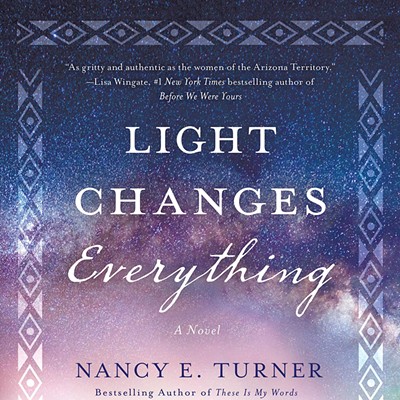But despite the dark subject matter, Brown--an assistant professor in the UA Department of English--writes with a graceful lightness of style that, while starkly in contrast to the book's weighty subject matter, serves to render his stories almost gothically beautiful.
Each tale is ominous, grabbing you at the start and tightening into a stranglehold by the end. In one of them, a long-lost brother who'd been attacked and possibly raped returns home after 10 years in exile, only to fake his own death to finalize his disconnection. In another, a father and his quiet, adoring son take their boat out a bit too late in weather a bit too stormy. A logger can't escape the horrid memory of a drunken crash in which he killed a young woman. A girl witnesses a man falling through the ice to his demise and doesn't tell anyone about it--only to realize years later that this innocent lapse in judgment will haunt her forever.
The voices in Brown's stories range from those of vaguely intelligent little girls to those of hulking, alcoholic adult men to those of delicate teenage boys desperate to please their parents. Each voice is finely tuned and very real: Brown crafts startlingly complete emotional portraits, mining and sculpting, it seems, each character from the dark rocks of Maine itself. The town where they all live, Vaughn, is full of history, and families know their roots going back hundreds of years, so they're aware of the problems that came before and are sure to come again. There's a yearning in each to escape the tiny town, but it seems that those who do make it out are so desperate by the time they flee that they hurtle straight down a path of self-destruction.
At first, you might think Brown is cruel to place his people in such ugly circumstances, but soon you realize that he is actually quite sympathetic to his collection of miscreants and unfortunates. Buried somewhere in each of them is hopefulness and above all, love. Love is what drives them to drink, what drives them to hurt, what drives them to run away--and to come back. Brown has mined the human spirit and mapped its depths; a feat, even if the results might be less than satisfactory for those with more faith in the human condition.
His language is spare, but it carries tremendous emotional weight, as if each sentence--free from overly wrought adjectives and description--carries behind it an anchor, dragging it down. There are flashbacks and side notes but little scenery, which is fine, since the imposing woods of Maine set the tone and stamp out the significance of anything else.
There is not a single humorous moment in the book. This might drive some readers away after the first few stories, most likely those who believe that it just can't be all that bad. But many will press on, even knowing all along that something utterly terrible is going to happen. Maybe it's voyeurism, or maybe it's because you continue to hope that everything will be all right--which, occasionally, becomes a possibility, as shining glints of goodness do stream into the book here and there, even if only as a flash of a memory unearthed from a distant past.
Does the book tell us why the devil chose New England for his work? I'm from New England and think it's a rather lovely place, filled with snowscapes and smiling people. However, the backwoods of Maine, filled with sprawling families and dangerous machinery, are a good place to set a book like this, which travels to the dark heart of a community and a region for the purpose of--what? Exorcism, perhaps. Entertainment isn't the right word to use; this is not a book to be taken lightly. But in reading about Brown's ugly people and their ugly deeds, you will continually be struck by the beauty of his prose--and the mere fact that such lovely writing can exist in such proximity to horrid deeds. This, perhaps, is why the book has an undertone of hope--if not happiness.








